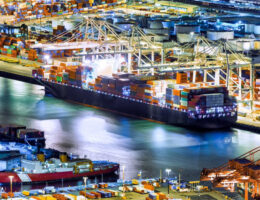The Canada Border Services Agency (CBSA) has recently provided public comments to industry professionals concerning its enforcement plans related to the importation of goods suspected to be mined, manufactured, or produced with forced or child labor.
Canada implemented an import prohibition on goods mined, manufactured or produced wholly or in part by forced labor as of 1 July 2020, when Parliament amended the Customs Tariff (tariff item no. 9897.00.00) to reflect Canada’s new obligations under the USMCA (Article 23.6: Forced or Compulsory Labor).
Through the Canadian Labour and Employment Law blog, our lawyers provide legal updates and practical insights to help clients understand, prepare for and respond to the latest domestic and cross-border Labour and Employment issues affecting Canadian and multinational employers.
2023 has proven to be another dynamic year under the Government of Canada’s trade agenda, which showed no signs of slowing over the summer. From May to August 2023, the Government passed into law novel supply chain transparency legislation and introduced amendments and legislative proposals that are impacting, or will impact, compliance with Canadian customs, export controls, and economic sanctions legislation.
Watch the companion videos highlighting our compliance tips in relation to developments in Canadian customs, sanctions, export controls, and forced labor laws.
On 21 September 2023, Canada announced amendments to the Special Economic Measures (Haiti) Regulations (the “Regulations”) in response to “acts of significant corruption”. These amendments list an additional three individuals under the Schedule of the Regulations and took effect on 20 September 2023. This follows Canada’s appointment of a new ambassador of Canada to Haiti, André François Giroux, on 18 September 2023.
On 14 September 2023, Canada announced further amendments to the Special Economic Measures (Iran) Regulations (the “Regulations”) in an effort to impose costs on the Iranian regime for gross and systemic human rights violations. These amendments list an additional six individuals under Schedule 1 of the Regulations and is the 14th set of amending regulations issued by Canada since October 2022. As of the most recent amendments, Canada has sanctioned 176 Iranian individuals and 192 Iranian entities.
Baker McKenzie’s Sanctions Blog published the alert titled Canada continues to amend sanctions legislation in relation to Iran, Belarus, Russia and designates Lebanese nationals under Magnitsky law on 30 August 2023. Read the article via the link here. Please also visit our Sanctions Blog for the most recent updates.
The launch of the Canada Border Services Agency Assessment and Revenue Management (CARM) project has officially been pushed back from October 2023 to May 2024. The regulatory amendments relating to electronic communication and payment, the provision of financial security electronically, and billing cycles that are necessary to support the launch and use of CARM are still on schedule and are planned to come into force in May 2024. The purpose of CARM is to modernize the collection of duties and taxes for goods imported into Canada.
Baker McKenzie’s Sanctions Blog published the alert titled Canada Imposes Additional Sanctions Against Russia: 39 Individuals and 25 Entities Targeted on 20 July 2023. Read the article via the link here. Please also visit our Sanctions Blog for the most recent updates.
View the recorded sessions from our 2023 Virtual Global Trade Conference where international trade compliance lawyers from around the world reviewed major developments impacting international trade.
Baker McKenzie’s Sanctions Blog published the alert titled Blog Series: Sanctions Enforcement Around the World – Five Eyes Partners agree to coordinate enforcement on export controls on 11 July 2023. Read the article via the link here. Please also visit our Sanctions Blog for the most recent updates.








